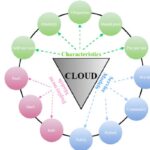Consolidate Your Debt – Most of us are in debt, and most of us want to escape it and achieve financial freedom. After all, as the saying goes, a debt-free life is a stress-free life.
But it can be challenging to figure out which debt repayment strategy will work best for us as individuals. What works for one person might not work for another.
Also, not all people qualify for the same debt repayment strategies. An excellent example: debt consolidation loans.
What Is a Debt Consolidation Loan?
A debt consolidation loan is a form of debt refinancing whereby someone in debt consolidates their multiple debts into one monthly payment at a set interest rate. This interest rate should be lower than the interest rate on the individual debts, thus saving the debtor money.
Banks, credit unions, and financial institutions are authorized to issue debt consolidation loans.
There are exceptions, of course, but most debt consolidation loans usually only cover unsecured debt, such as medical and credit card bills. Although student loans are also considered unsecured debt, they are rarely included in debt consolidation loans. This is because the interest rate on student loans is typically lower than the interest rate on debt consolidation loans.
Who Is Eligible for Debt Consolidation Loans?
Not everyone is eligible for debt consolidation loans. To qualify for debt consolidation loans, you generally need to have good credit.
That doesn’t mean, however, that consumers must have good credit to qualify for other debt consolidation services.
Indeed, consumers who do not qualify for debt consolidation loans might be eligible for debt consolidation services, like a debt consolidation program. Debt consolidation programs or DCPs offer an alternative to debt consolidation loans. Both options are in many ways similar and share the same goal: to free consumers from debt by consolidating their unsecured debts into one monthly payment they can afford at a reduced interest rate.
What Is a Debt Consolidation Program?
A debt consolidation program (DCP), like a debt consolidation loan, is a form of debt refinancing. Unlike debt consolidation loans, however, DCPs are offered by non-profit credit counselling agencies that set consumers up with certified credit counsellors who negotiate on consumers’ behalf with their creditors to achieve two goals:
- Drop or even entirely cease the interest on the balances the consumer owes
- Combine, i.e. consolidate, all of the consumer’s balances into one lower monthly payment
Credit counsellors also offer consumers financial guidance about, for instance, how to spend within their means, abide by a budget, clearly identify their financial goals, and take the small and big steps necessary to achieve them.
Another crucial difference between debt consolidation loans and DCPs is that consumers do not need good credit to be eligible for DCPs.
DCPs, like debt consolidation loans, typically do not consolidate secured debts but rather only unsecured debts.
Why Consolidate Your Debt?
Debt consolidation, at its best, streamlines the debt repayment process by making it simpler, more affordable, and faster.
To figure out whether you would benefit from consolidating your debt, it helps to do research online and speak to at least one financial adviser.
Some non-profit credit counselling agencies that offer DCPs also offer free debt assessments, making it easier for consumers to decide whether debt consolidation is right for them and, if so, whether they should take out debt consolidation loans or register for a DCP.












